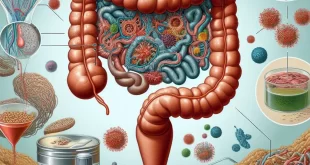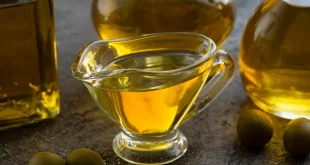WHAT IS MUCUNA PRURIENS?
Mucuna pruriens, also called mascate pea or purple bean, is an annual climbing plant native to southern China and India and currently cultivated in the tropics. Muscat pea is part of a family of legumes, mucuna, comprising about 150 species, of which mucuna pruriens has the most interesting medicinal value .
It is a climbing plant that can grow up to 15m tall. Its flowers can be white or purple and its pods, which contain up to 6 seeds, are covered with yellowish, stinging hairs.
This plant is renowned in Ayurvedic medicine for its virtues on nervous balance. In the Himalayas, mucuna pruriens is eaten due to its high protein content. In Central America, the seeds of the plant are roasted and ground and used as a coffee substitute. Indeed, the bitter taste of the powder of the mucuna is reminiscent of that of coffee.
In herbal medicine, it is the seeds of mucuna which are used and which are arousing more and more interest in scientific research, in particular for its astonishing nutritional composition.
NUTRITIONAL COMPOSITION OF MUCUNA PRURIENS
Mucuna pruriens has excellent nutritional value and its health benefits are due to its active ingredients, the main ones of which are [1]:
- The minerals ;
- Food proteins;
- Essential amino acids;
- Fatty acids;
- Starch.
On the other hand, mucuna seed extracts contain [2, 3]:
- Antioxidants;
- Tryptamines;
- Serotonin;
- D-chiro-inositol.
In addition, this creeper contains L-Dopa, a dopamine precursor known under the drug name Levodopa® [1]. It is moreover this high concentration of L-Dopa that arouses the interest of neurologists concerning the use of mucuna pruriens in the treatment of Parkinson’s disease. Indeed, Parkinson’s disease is characterized by the destruction of dopamine neurons. A course of bush bean helps regulate dopamine levels , which is why studies suggest its effectiveness in the treatment of symptoms, particularly motor symptoms of Parkinson’s disease [1].
BENEFITS, VIRTUES AND EFFECTS
Mucuna pruriens has long been used in traditional medicine to treat symptoms of Parkinson’s disease, male infertility, and in Ayurvedic medicine as an aphrodisiac to increase libido. Are there clinical studies that prove the effectiveness of the active compounds in mucuna? What are their mechanisms of action? In this section, we will first see an overview of the benefits of the mascot pea , then we will detail, with supporting studies, all of these indications.
SUMMARY OF BENEFITS OF MUCUNA PRURIENS
Fight against Parkinson’s disease
- Decreased symptoms of Parkinson’s disease;
- Similar or even superior to conventional drugs with fewer side effects;
- Neuroprotective action of antioxidants.
Fights sexual disorders
Fights male infertility
- Improved sperm quality: sperm concentration, number and motility;
- Reduction in FSH and prolactin levels.
Increases libido
- Stimulation of dopamine production;
- Treatment of erectile disorders.
Reduces stress
- Reduction of psychological stress;
- Reduction in cortisol levels.
Improves mood
- Fights depression;
- Improves mood and pleasure.
Would protect against snake venom
- Prevention against snake venom;
- Production of antibodies against the venom.
Fight against diabetes
- Hypoglycemic effect: reduces the level of glucose in the blood.
BENEFIT DETAILS
► Fight against Parkinson’s disease
Mucuna pruriens decreases the symptoms of Parkinson’s disease. Indeed, several studies [4, 5] have shown that the dry extract of the seeds of this plant has the same effect, or even acts better, than Levodopa® , the standard drug in the treatment of Parkinson’s disease. On the other hand, administration of low doses of mucuna pruriens in patients with Parkinson’s disease not only reduced symptoms, especially tremors, but caused fewer side effects than conventional treatments [6].
How does it work ? L-Dopa is the main active compound in mucuna which may act against the symptoms of Parkinson’s disease. This is because patients with this disease have low dopamine levels. However, studies [1] estimate that L-Dopa is able to cross the blood-brain barrier and is considered as a precursor of dopamine. It would be able to restore dopamine levels in patients with Parkinson’s disease. In addition, the antioxidants that make up this plant also seem to have a neuroprotective action.
► Fights sexual disorders
Mucuna pruriens can fight sexual disorders and fight against male infertility. These are the results of several clinical studies carried out to demonstrate the effectiveness of the active compounds of mucuna on libido and on spermatic parameters in men.
Fights male infertility
Mucuna seed extract improves motility and sperm count in men. This is the result of a study carried out on 60 men with infertility [7]. This study suggests the effectiveness of mucuna pruriens in improving sperm quality and therefore male fertility.
On the other hand, this herb decreases the levels of FSH and prolactin in men with infertility [8]. However, these two hormones are precisely associated with impaired testicular function and reduce fertility in men.
Increases libido (Ayurvedic medicine)
In Ayurvedic medicine, the seeds of mucuna have long been used as an aphrodisiac to improve libido.
Dopamine is one of the most important neurotransmitters in sexual behavior and libido in men. There is a direct relationship between dopamine levels and libido: increasing dopamine levels increases libido and vice versa [8]. Mucuna pruriens is a plant that stimulates dopamine production thanks to L-Dopa, one of its precursors [1].
On the other hand, mucuna pruriens helps protect erectile tissue from oxidative stress , which suggests its efficacy in the treatment of erectile disorders, especially in people with diabetes [9].
► Reduces stress
Being a precursor of dopamine, the use of mucuna pruriens is suggested to reduce stress, one of the causes of infertility in men. In fact, a three-month study [7] made it possible to evaluate the effects of mucuna pruriens seeds on psychological stress in men suffering from infertility. The results of this study showed a significant improvement in stress with a reduction in cortisol levels alongside an improvement in sperm parameters.
► Improves mood
Dopamine, one of the most important neurotransmitters, appears to play a role in motivation, pleasure and mood [10]. Thus, its deficiency in specific areas of the brain could trigger symptoms of depression. As such, scientists suggest that mucuna pruriens may have dopaminergic action and thus improve mood . However, for the moment, these results have been demonstrated in animal models. Human studies are needed to confirm this indication.
► Would protect against snake venom
In traditional medicine in Nigeria, extracts of mucuna pruriens are used as a pretreatment, in prevention, against snake venom. Some histological studies [11] have shown some efficacy of mucuna on certain tissues. Thus, the extract of mucuna pruriens protected heart tissue from the harmful consequences of snake venom. These studies suggest that mucuna stimulates the secretion of antibodies against viper venom . These antibodies are believed to remain in the body long enough to stimulate the immune system [1].
► Fight against diabetes
Mucuna pruriens may lower the level of glucose in the blood. This hypoglycemic effect of mucuna appears to be due to one of its molecules, D-chiro-inositol, present in the roots of the plant [12]. In fact, D-chiro-inositol mimics the effect of insulin and thus lowers blood sugar at high doses [1].
 medjouel.com Study Non Stop
medjouel.com Study Non Stop



